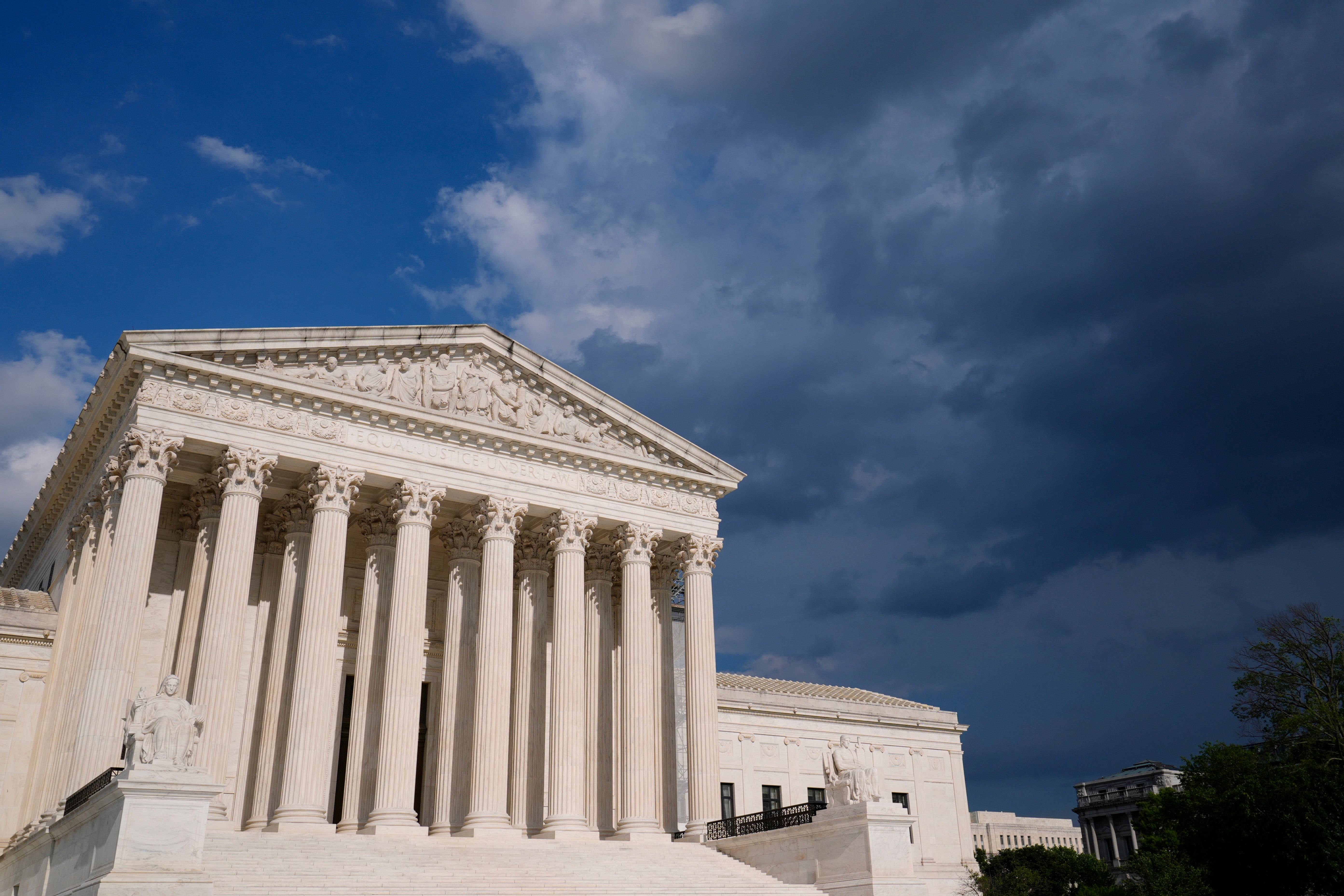Supreme Court will hear Catholic charitable group's plea to be free from Wisconsin unemployment tax
The Supreme Court has agreed to take up a new religious rights case over whether a Catholic charitable organization must pay Wisconsin’s employment tax

Your support helps us to tell the story
From reproductive rights to climate change to Big Tech, The Independent is on the ground when the story is developing. Whether it's investigating the financials of Elon Musk's pro-Trump PAC or producing our latest documentary, 'The A Word', which shines a light on the American women fighting for reproductive rights, we know how important it is to parse out the facts from the messaging.
At such a critical moment in US history, we need reporters on the ground. Your donation allows us to keep sending journalists to speak to both sides of the story.
The Independent is trusted by Americans across the entire political spectrum. And unlike many other quality news outlets, we choose not to lock Americans out of our reporting and analysis with paywalls. We believe quality journalism should be available to everyone, paid for by those who can afford it.
Your support makes all the difference.The Supreme Court on Friday said it would take up a new religious rights case over whether a Catholic charitable organization must pay Wisconsin's employment tax.
The justices will review a divided state Supreme Court ruling that refused to grant an exemption to the Catholic Charities Bureau, based in Superior, Wisconsin. The state court ruled that the work of Catholic Charities and four related organizations is primarily not religious, although it found that the motivation to help older, disabled and low-income people stems from Catholic teachings.
The case probably will be argued in the spring.
The Supreme Court in recent years has issued an unbroken string of decisions siding with churches and religious plaintiffs in disputes with states.
Lawyers for the Wisconsin groups argued to the court that the decision violates religious freedoms protected by the First Amendment. They also said the court should step in to resolve conflicting rulings by several top state courts on the same issue.
Wisconsin Attorney General Joshua Kaul had urged the high court to stay out of the case, arguing that much of the groups' funding comes from state and local governments, and the joint federal and state Medicaid program.
Employees don't have to be Catholic and “people receiving services from these organizations receive no religious training or orientation,” Kaul wrote.
Catholic Charities has paid the unemployment tax since 1972, he wrote.
Wisconsin exempts church-controlled organizations from the tax if they are "operated primarily for religious purposes.” The state high court ruled that both the motivations and the activities have to be religious for organizations to avoid paying the tax.
A group of religious scholars, backing Catholic Charities, told the court that “the case involves governmental interference with religious liberty” that warrants the justices' intervention.
Catholic, Islamic, Lutheran, Jewish and Mormon organizations also filed briefs in support of Catholic Charities.
At the state Supreme Court, the Freedom from Religion Foundation argued that a ruling for Catholic Charities would extend to religiously affiliated hospitals and some colleges across Wisconsin, potentially taking their employees out of the state unemployment insurance system.
Catholic Charities in Superior manages nonprofit organizations that run more than 60 programs designed to help older or disabled people, children with special needs, low-income families, and people suffering from disasters, regardless of their religion, according to court documents.